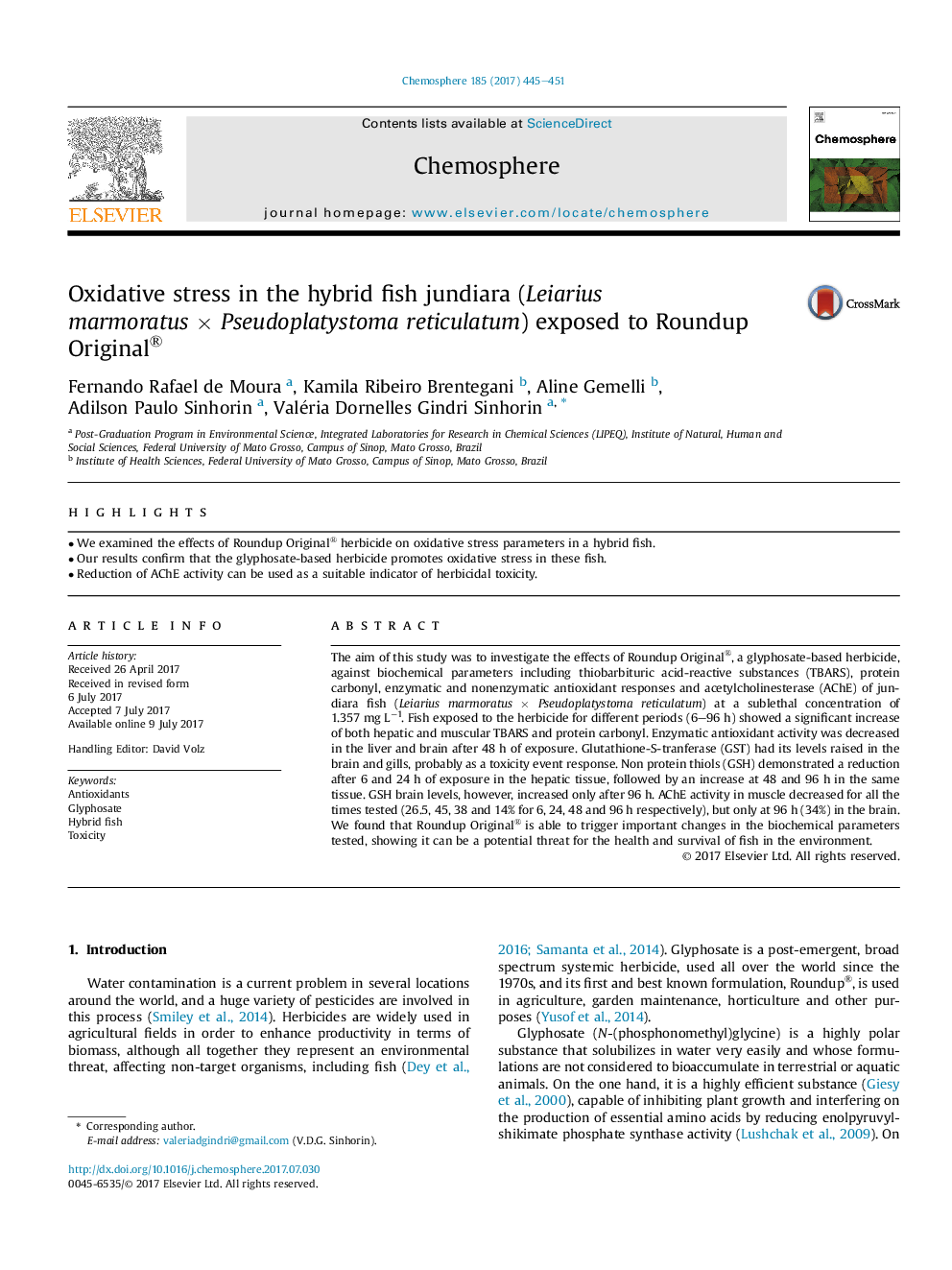| Article ID | Journal | Published Year | Pages | File Type |
|---|---|---|---|---|
| 5746746 | Chemosphere | 2017 | 7 Pages |
â¢We examined the effects of Roundup Original® herbicide on oxidative stress parameters in a hybrid fish.â¢Our results confirm that the glyphosate-based herbicide promotes oxidative stress in these fish.â¢Reduction of AChE activity can be used as a suitable indicator of herbicidal toxicity.
The aim of this study was to investigate the effects of Roundup Original®, a glyphosate-based herbicide, against biochemical parameters including thiobarbituric acid-reactive substances (TBARS), protein carbonyl, enzymatic and nonenzymatic antioxidant responses and acetylcholinesterase (AChE) of jundiara fish (Leiarius marmoratus Ã Pseudoplatystoma reticulatum) at a sublethal concentration of 1.357 mg Lâ1. Fish exposed to the herbicide for different periods (6-96 h) showed a significant increase of both hepatic and muscular TBARS and protein carbonyl. Enzymatic antioxidant activity was decreased in the liver and brain after 48 h of exposure. Glutathione-S-tranferase (GST) had its levels raised in the brain and gills, probably as a toxicity event response. Non protein thiols (GSH) demonstrated a reduction after 6 and 24 h of exposure in the hepatic tissue, followed by an increase at 48 and 96 h in the same tissue. GSH brain levels, however, increased only after 96 h. AChE activity in muscle decreased for all the times tested (26.5, 45, 38 and 14% for 6, 24, 48 and 96 h respectively), but only at 96 h (34%) in the brain. We found that Roundup Original® is able to trigger important changes in the biochemical parameters tested, showing it can be a potential threat for the health and survival of fish in the environment.
